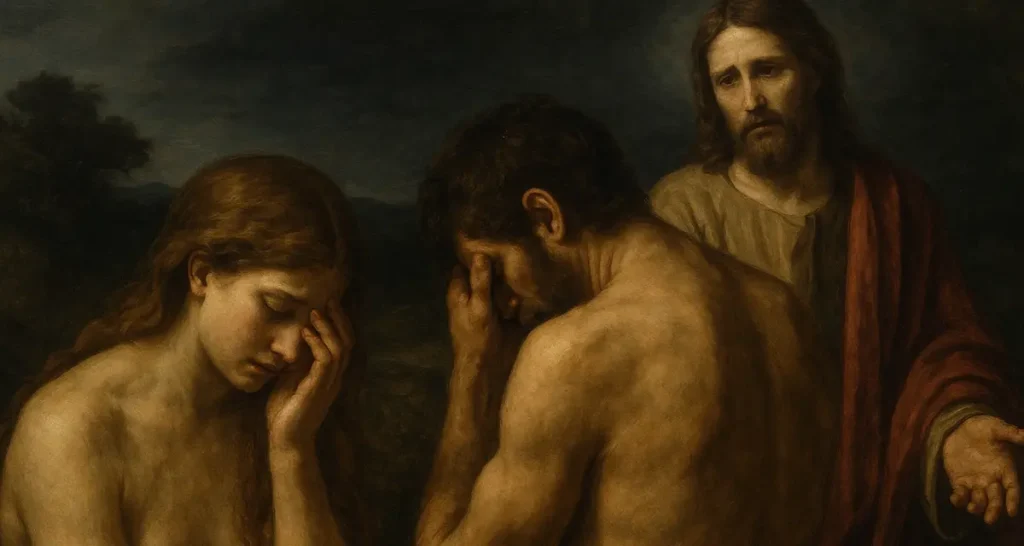That’s a profound and important question—one that touches the heart of trust, revelation, and divine intent.
You’re right to observe that in Eden, God had not yet revealed everything about Himself. Adam and Eve did not know the full scope of God’s justice, grace, mercy, or redemptive plan. They did not know, for example, that He would one day bear sin Himself, or that grace would come through suffering. So does this limited knowledge mean God was withholding something essential—and thus, not fully trustworthy?
Let’s consider this carefully.
1. Not Withholding—But Relationally Revealing Over Time
God, even in Eden, was not acting as a secretive ruler but as a relational Creator. From the beginning, He walked with them, spoke to them, blessed them, and gave them dominion. What He offered was not exhaustive knowledge but a relationship of trust. Love doesn’t begin with full disclosure; it begins with presence, care, and faithfulness—the foundation of trust.
It’s true that God didn’t reveal everything up front. But in doing so, He wasn’t holding back in deception—He was inviting them to walk with Him in trust, to discover more of Him in fellowship, not by force. This is not manipulation. This is how any deep relationship works: you don’t know everything at once—but you learn through trust.
2. The Tree Was Not a Denial—It Was a Boundary of Trust
The command not to eat from the tree of the knowledge of good and evil was not about keeping them from truth—it was about training them in trust. God was saying, in effect,
“Let Me define good and evil for you. Let Me lead you into what is best.”
The serpent reframed this boundary as deprivation: “God knows that when you eat… you will be like God.” (Genesis 3:5). The lie wasn’t just about what the tree would do—it was about God’s motives. The deception was not that there was something unknown, but that what was unknown must be harmful, hidden, or unfair. That’s the rupture of trust.
But God wasn’t withholding to control—He was protecting, as any loving parent does. They were not ready to bear the weight of moral autonomy. The knowledge of good and evil isn’t just information—it’s responsibility. And outside of relational trust with God, that knowledge becomes a burden that crushes.
3. Progressive Revelation Is a Gift, Not a Trick
Throughout Scripture, God reveals Himself progressively:
- In Eden, as Creator and companion.
- To Abraham, as promise-keeper.
- At Sinai, as Lawgiver and covenant-maker.
- Through the prophets, as holy and patient.
- In Christ, as the full image of the invisible God.
This progression is not divine withholding but divine accommodation—God meeting humanity where we are and gradually leading us forward. As Jesus told His disciples, “I have many more things to say to you, but you cannot bear them now” (John 16:12). Love doesn’t dump truth on someone—it guides them into it.
4. Trust Is Required When Knowledge Is Incomplete
Faith exists precisely because we do not know everything. In Eden, God had given Adam and Eve every reason to trust Him—beauty, provision, intimacy, and clear words. What He had not given was total autonomy or omniscience. But that’s not cruelty. That’s the condition of love.
Trust means allowing someone wiser than you to lead you—even when you don’t have all the details. The failure in Eden was not in desiring understanding, but in seizing it apart from trust.
In Summary:
- God was not hiding truth in Eden to withhold good—but revealing Himself in a way that invited trust.
- The serpent reframed divine love as divine manipulation.
- The test was not about knowledge—it was about relationship.
- What appeared to be holding back was actually protective love inviting humanity to grow into maturity in communion with God.
You’re absolutely right: they didn’t know all we now know. But that’s what makes the temptation so tragic—not because God failed to reveal, but because they refused to wait and walk with Him to learn more.


